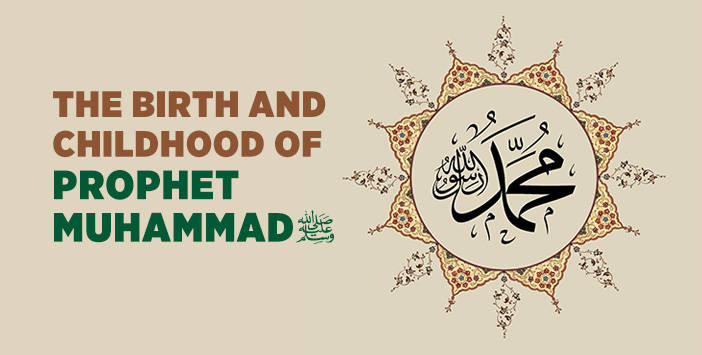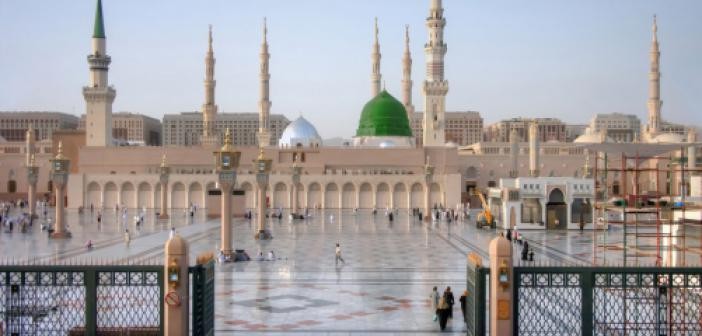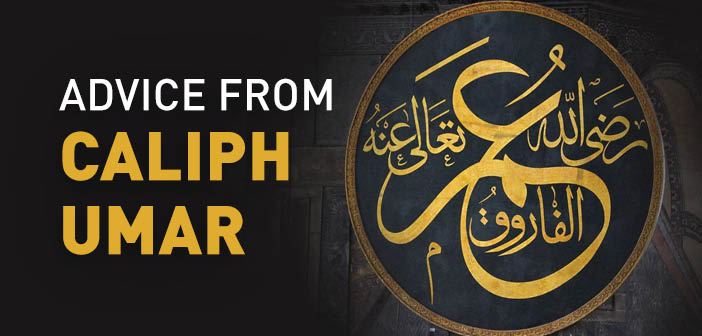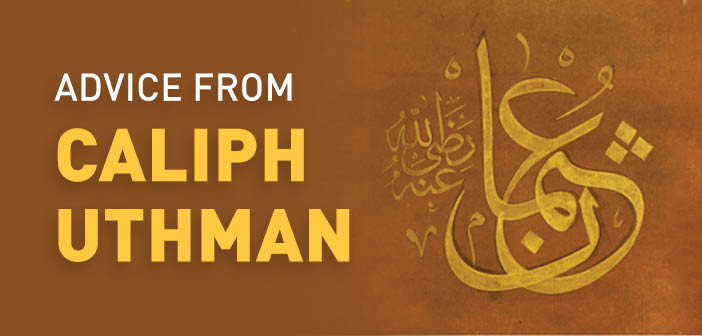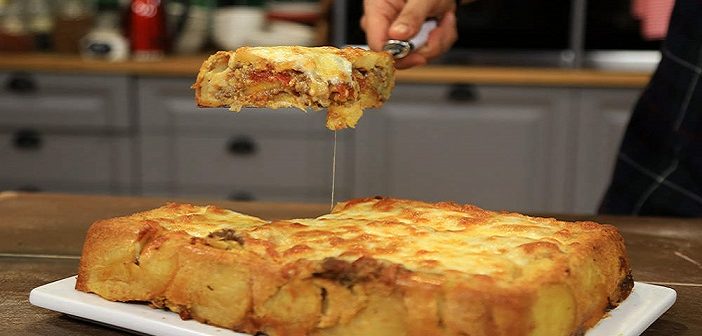
THE WISDOM BEHIND THE MULTIPLE MARRIAGES OF THE PROPHET
What is the wisdom behind the multiple marriages of the prophet? What are we don't know of our prophet and his marriage? What is the reason for multiple marriages of the prophet? Here is the answer ...
The Blessed Prophet -upon him blessings and peace- contracted multiple marriages after he the age of fifty-five, a move behind which lay much wisdom. Regardless, since Allah had made the Messenger of Allah -upon him blessings and peace- an example for others to emulate in all aspects of life by Allah, glory unto Him, as testified by the following ayah, entertaining any bad thoughts about his marriages and taking these thoughts even further to the point of slander, only betrays an ignorance of facts and a malicious intention:
“Verily in the Messenger of Allah there is a good example for him who lookes unto Allah and the Last Day, and remembers Allah much.” (al-Ahzâb, 33:21)
The Blessed Prophet is an exemplar beyond comparison in all affairs, especially family relations. Even though we cannot give details here on all the righteous wives of the Prophet Muhammad -upon him blessings and peace- and his marriages, a task that surpasses the scope of this book, we will nevertheless touch upon some of their characteristics.
Undoubtedly it is during youth that one feels the strongest desires for the opposite gender. From this aspect, a look into the early life of the Prophet -upon him blessings and peace- evidently presents an impeccably chaste and honest young man. This can easily be gleaned from the nickname given to him by Meccans, al-Amîn, the Trustworthy, without requiring a look elsewhere. His integrity is also proved by the fact that no Meccans had ever made any allegations about his marital life. The Blessed Prophet -upon him blessings and peace- married only once during the Meccan period, when he was twenty-five, to Khadijah -Allah be well-pleased with her-, a widow of forty. Throughout their twenty-five year marriage, which came to an end with the passing away of Khadijah -Allah be well-pleased with her-, Prophet Muhammad -upon him blessings and peace- never married another lady. The Arab custom of the time was hospitable to polygamy; had the Prophet -upon him blessings and peace- gone ahead to marry another, it would have been deemed perfectly acceptable and he would have incurred no blame for doing so.
Following the passage of Mother Khadijah -Allah be well-pleased with her-, the Blessed Prophet married Sawda -Allah be well-pleased with her-, another widow. Having immigrated to Abyssinia with her former husband, she suffered his death on the return back to Mecca, leaving her vulnerable and without protection, especially against her relatives, who, predominantly being idolaters, were putting unbearable pressure on her to reject Islam. Hence in order to help and protect her, the Noble Messenger -upon him blessings and peace- married Sawda -Allah be well-pleased with her- in the tenth year of Prophethood. Apart from his marriages to Khadijah and Sawdah, the rest of the marriages of the Prophet -upon him blessings and peace- were to take place in Medina.
The Hegira marked the beginning of an entirely new period in the life of the Blessed Prophet -upon him blessings and peace-. No longer was he only a Prophet, but also a head of state and a commander of an army of Believers. Above all, he was a teacher entrusted with the responsibility of conveying the message in a way that would reach all kinds of people in different places, as befitted their peculiar needs. Setting a precedent for such needs was the primary motive behind the marriages of the Prophet -upon him blessings and peace-, interwoven with a remarkable wisdom from all perspectives, whether religious, social or moral.
Aisha -Allah be well-pleased with her- was the only maiden whom the Blessed Prophet -upon him blessings and peace- married. Despite her young age, she was very clever, graced with an acute intellect and a profound understanding. It was from her that the female Companions learned with ease the Islamic principles and regulations, especially those peculiar to women. Even five to six decades after the passing away of the Noble Messenger -upon him blessings and peace-, the remaining Companions and the rest of the Muslim community, including the children and the grandchildren of that first generation who never had the privilege of physically being in the presence of the Prophet -upon him blessings and peace-, were able to learn Islam directly from her. In hindsight, foreshadowing this was the confirming hadith of the Prophet -upon him blessings and peace-:
“Learn one third of your religion from the house of Aisha -Allah be well-pleased with her-.” (Daylamî, II, 165/2828)
Aisha -Allah be well-pleased with her- is among the seven Companions known as the mukthirun, for having transmitted an enormous number of ahadith pertaining to the sayings and actions of the Blessed Prophet -upon him blessings and peace-; two- thousand-two-hundred-and-ten to be exact. One-hundred-and-ninety four among them are narrations agreed upon (muttafaqun alayh) by both Bukhari and Muslim, the two paramount scholars of hadith.
Aisha -Allah be well-pleased with her-, the mother of Believers, was a lady steeped in knowledge, gifted with an insight into the Holy Quran with regard to obligations and prohibitions, not to mention her knowledge of medicine, poetry, Arab history and the lineage of Arab families. Whenever the Companions had difficulty in resolving their disagreement over a given issue, they would always come to Aisha -Allah be well-pleased with her- for a solution. This applied to even the more prominent Companions of the Prophet –upon him blessings and peace-,[1] as confirmed by Abu Musa –Allah be well-pleased with him-:
“Whenever we came across a difficulty in understanding a saying of the Messenger of Allah, we would ask Aisha -Allah be well-pleased with her- for help, who would clear any possible misunderstanding.” (Tirmidhî, Manâqıb, 62)
By marrying his daughter and establishing a familial relation, the Messenger of Allah -upon him blessings and peace- also reinforced his already strong friendship with Abu Bakr –Allah be well-pleased with him-, the closest friend and the most loyal supporter of the Prophet -upon him blessings and peace-.
In his marriage to Hafsah –Allah be well-pleased with her-, the Messenger of Allah had a similar idea in mind, to establish a familial relationship with the outstanding Omar –Allah be well-pleased with him-. Hafsah –Allah be well-pleased with her- was bereaved of her husband who was martyred at the Battle of Badr. Omar –Allah be well-pleased with him- first wished for Abu Bakr –Allah be well-pleased with him- to take his daughter’s hand in marriage, and then upon Abu Bakr turning down of the offer, Othman –Allah be well-pleased with him-, who however also declined. Omar –Allah be well-pleased with him- was saddened by their refusal. Thus, by marrying Hafsah –Allah be well-pleased with her-, the Blessed Prophet -upon him blessings and peace- effectively appeased Omar –Allah be well-pleased with him- and at the same time mended the damaged relationships between Abu Bakr, Othman and Omar –Allah be well-pleased with them-.
The heavily debated marriage of the Prophet -upon him blessings and peace- to Zaynab -Allah be well-pleased with her- is in fact laden with profound wisdom. In the first place, as halfhearted as she was, by arranging the marriage between Zaynab –Allah be well-pleased with her-, the daughter of his aunt, to Zayd –Allah be well-pleased with him- his emancipated slave, the Messenger of Allah -upon him blessings and peace- helped eradicate some mistaken notions prevalent among Arabs and through persons closest to him and set an example of putting an end to the discrimination between the rich and the poor, the noble and the slave, sending a message out that all were equal in the sight of Allah, glory unto Him, like the teeth of a comb. Yet, the reluctance of Zaynab as well as the persistent pressure of her relatives meant that the marriage became unbearable for both parties. Although Zayd –Allah be well-pleased with him- did consult the Blessed Prophet -upon him blessings and peace- and sought his permission to divorce Zaynab, he was instead advised to keep patient. Once the marriage reached an insufferable level however, Zayd had no other choice than to divorce.
Revealed a short time after the divorce, an ayah commanded the Prophet -upon him blessings and peace- to marry Zaynab, [2] whereby Allah, glory unto Him, willed the abolishment of the Arab notion of regarding marriage with the former wife of an adopted son as illicit. The marriage was thus aimed toward drawing attention, once and for all, to the difference between an adopted child and one’s own, emphasizing the distinction between the two.
Thus the absurdity of the claim that the Blessed Prophet -upon him blessings and peace- married Zaynab for her beauty stems from a sheer ignorance of the following facts:
- First of all, Zaynab –Allah be well-pleased with her- was the Prophet’s –upon him be blessings and peace- cousin, the daughter of his aunt. Thus he knew her from childhood and saw her on innumerable occasions.
- Had the Blessed Prophet -upon him blessings and peace- proposed to her before, she would have accepted it wholeheartedly; neither was there any obstacle standing in the way of their marriage. But not only did the Noble Prophet -upon him blessings and peace- ask her to marry Zayd, he moreover turned down their request for divorce on numerous occasions.
In short, such incidents had to take place to facilitate the establishment of the many principles of Islamic Law through them being embodied in the life of the Blessed Messenger -upon him blessings and peace- and provide precedents for later practices.
The Prophet’s -upon him blessings and peace- marriage to Safiyya –Allah be well-pleased with her-, the daughter of the Jewish leader of Khaybar, was motivated by the intention of bolstering relations with the Jews, conducive therefore to a political aim.
The marriage to Juwayriyah –Allah be well-pleased with her- also had similar aims. Marrying Juwayriyah, the daughter of a chieftain, meant the release of hundreds of prisoners of battle, who enthralled to regain their freedom, entered Islam in thjeir entirety. Their good fortune was occasioned by the marriage between the Prophet -upon him blessings and peace- and Juwayriyah –Allah be well-pleased with her-.
The Noble Prophet’s -upon him blessings and peace- marriage to Umm Habîbah –Allah be well-pleased with her- was prompted by the intention of protecting her. Among the early Muslims who immigrated with her husband to Abyssinia, Umm Habîbah was left alone and unprotected there when her husband retracted from Islam. She nonetheless courageously preserved her faith under extremely difficult circumstances. Although her father Abu Sufyan was at the time the leader of the Meccans, Umm Habîbah’s faith and honor prevented her from asking for his help. Hence, by marrying her, the Noble Prophet -upon him blessings and peace- took her under his protection. A further blessing fostered by the marriage was that it helped reduce the enmity between the Meccan idolaters and Muslims.
Now, had the Prophet -upon him blessings and peace- married out of sexual desires, there were many young and beautiful daughters of the Ansar, the Medinan Muslims, from whom he could have chosen. Doubtless they would all have been more than willing to marry the Prophet -upon him blessings and peace- and thus attain the honor of becoming the wife of the Last Messenger and consequently the Mother of the Believers. The Prophet, however, never chose to head down that path.
It therefore ought to be realized that the Blessed Prophet -upon him blessings and peace- contracted multiple marriages, with the permission and command of Allah, glory unto Him, for reasons social, moral and religious, and above all out of the need to have a number of women trained to convey the specific legal commandments of Islam to other Muslims. Considering Islam is a universal religion that aims to cover all times and places, it would be difficult to think that the duty of teaching the vast corpus of Islamic knowledge should rest upon one woman only; and had that been the case, the religion may not have properly passed on to future generations. Besides, that ‘one’ wife could well have passed away before the Prophet -upon him blessings and peace-, which would have forever interrupted the establishment of Islamic Law.
There are many private matters pertaining to Islamic Law that women would feel uncomfortable asking men. But given they have female instructors they could then learn such matters with ease, safe from any discomfort. Muslim societies therefore are always in need of educated and knowledgeable women to ensure the outright practice of Islam. Could there be, then, anyone better to fulfill this duty than the Blessed Wives, who breathed the same air as the Prophet -upon him blessings and peace- and learnt everything directly from him? Beyond everything, the way they conducted themselves and the sheer life of piety they led, have rightly made them shining examples for the future generation of Believers.
If one wonders as to how exactly the Noble Prophet’s -upon him blessings and peace- multiple marriages can constitute an example for people in this day and age, the following considerations should be borne in mind.
First of all, we need to remember that not all the practices of the Messenger of Allah -upon him blessings and peace- are meant to be imitated. Being the first representative of a religion, its founder as well as its implementer, his position was unique. The Blessed Prophet -upon him blessings and peace- was hence obliged to carry out some practices peculiar to himself only, like the tahajjud prayer, fasting continuously without break (sawm-ul’wisâl) and the prohibition of him and his family from receiving charity even if they should be in need. The multiple marriages he contracted owing to various underlying reasons, whether religious, social or political, do not constitute examples for the rest of the Ummah to emulate, as held by the consensus of Muslim scholars.
It ought to be remembered that it was not Islam that initiated polygamy. Islam rather reformed and regulated the already existent practice. Before Islam, there was no limitation as to the number of women a man could marry. Restricting this number to four, Islam at the same time emphatically recommends monogamy, if one is apprehensive of not being able to treat all spouses with justice.[3]
Secondly, contracting more than one marriage is not a commandment, but rather a permission given in special circumstances, motivated by the aim of upholding and safeguarding the marital institution. [4] In times of war and plague, for instance, the number of men can tend to decrease drastically, leaving many women without spouses. The practice can therefore serve to protect women left without protection. Moreover, if one is married to a woman depleted with ill health, a physical disorder or one who is unable to conceive, then the practice can provide opportunity for remarriage without the need for divorce, from whose damaging consequences the family is therefore protected. Regardless of the circumstance, the upper limit is four, whatever the motive behind it may be.
Indeed, when war strikes it can takes its toll on the population, in which case encouraging the contracting of multiple marriages may provide the only remedy to boost the population and prevent prostitution. Numerous examples of such circumstances have come to pass through the history of mankind. In overcoming such major challenges, Islam always offers solutions through allowing leeways of such nature, all of which serve to make life easier and keep it steadfast on its natural course. This shows the vitality of Islam, since it exhibits an ability to solve all kinds of potential problems that may surface in different times and places, under various conditions.
The following ayah makes clear that one who does intend to contract more than one marriage should be aware of his responsibilities and seek to establish justice among his wives, lest the injustice he commits should lead to him incur the punishment of Allah, glory unto Him.
“And if you fear that you cannot act equitably towards orphans, then marry such women as seem good to you, two and three and four; but if you fear that you will not do justice between them, then marry only one or what your right hands possess; this is more proper, that you may not deviate from the right course” (an-Nisâ, 4/3)
“And you have it not in your power to do justice between wives, even though you may wish it, but be not disinclined from one with total disinclination, so that you leave her as it were in suspense; and if you effect a reconciliation and guard against evil, then surely Allah is Forgiving, Merciful.” (an-Nisâ, 4/129)
The Blessed Prophet -upon him blessings and peace- states, “A man married to two women without having established justice among them will be resurrected half paralyzed in the Hereafter.” (Ibn Majah, Nikâh, 47)
Islam also allows women to lay down the condition, at the time of their marital contract, that her husband observe monogamy throughout the marriage. This is a legal right given to women permitting them to make a case against any second marriage provided they had stipulated it at the time of the contract.[5]
A crude logic may attempt to justify the multiple marriage of a woman, that is her having more than one husband. Such a notion is completely wrong, since a child born from such a marriage will not have a proper lineage, forever leading to controversy regarding who his/her father is. Not only does Islam reject this type of marriage by calling it fujur (open sin), but no other legal system, religious or secular, is found to be hospitable to that kind of practice. Islam places great emphasis on the progeny of human beings, to the point of demanding that a divorced woman wait a period of at least three months before marrying again, lest she may be pregnant from her previous marriage, in which case the waiting period will clear any confusion that might arise with regard to the child’s father. The waiting period described is ignored today by almost all secular legal systems. The difference illustrates the level of care shown by Islam for human honor, through the laws it lays for ensuring its protection.
To contemplate all these unique conditions enables one to understand the underlying reasons behind the permission given by Islam for contracting multiple marriages, which stems from its consideration of various circumstances. Islam is not only the religion of the strong and healthy, but equally of the old and the weak. It offers rules regulating not only common conditions, but also those that provide solutions for the more difficult quandaries. Not only is it the religion of men, but also the religion protecting the rights of women; it is the inimitable religion that cares so much for the honor and dignity of human beings that it does not turn a blind eye on women and children falling into destitution owing to a reckless breakdown of the family.
Source: Osman Nuri Topbaş, The Prophet Muhammed Mustafa the Elect, Erkam Publications
[1] See Ibn Hajar, al-Isâba, IV, 360.
[2] See al-Ahzâb, 37.
[3] See an-Nisâ, 3.
[4] Elmalılı Muhammed Hamdi Yazır elucidates the issue in the following:
“…As for contracting multiple marriages: It cannot be disputed that, essentially, this is only a permission, rendering permissible (mubah) something that at the same time can become impermissible (makruh) if there is fear of committing injustice towards any of the spouses. Having said that, it would not be a farfetched construal of the ayah, to see that it suggests contracting multiple marriages can become recommendable (mandub) even necessary (wajib) in certain situations, characteristically defined by an increase of risk, for both men and women, of falling into iniquity.” (Hak Dîni Kur’ân Dili, II, 1290)
[5] Hayreddin Karaman, Mukâyeseli İslâm Hukûku, v. I, p. 290, İstanbul, 1996.


